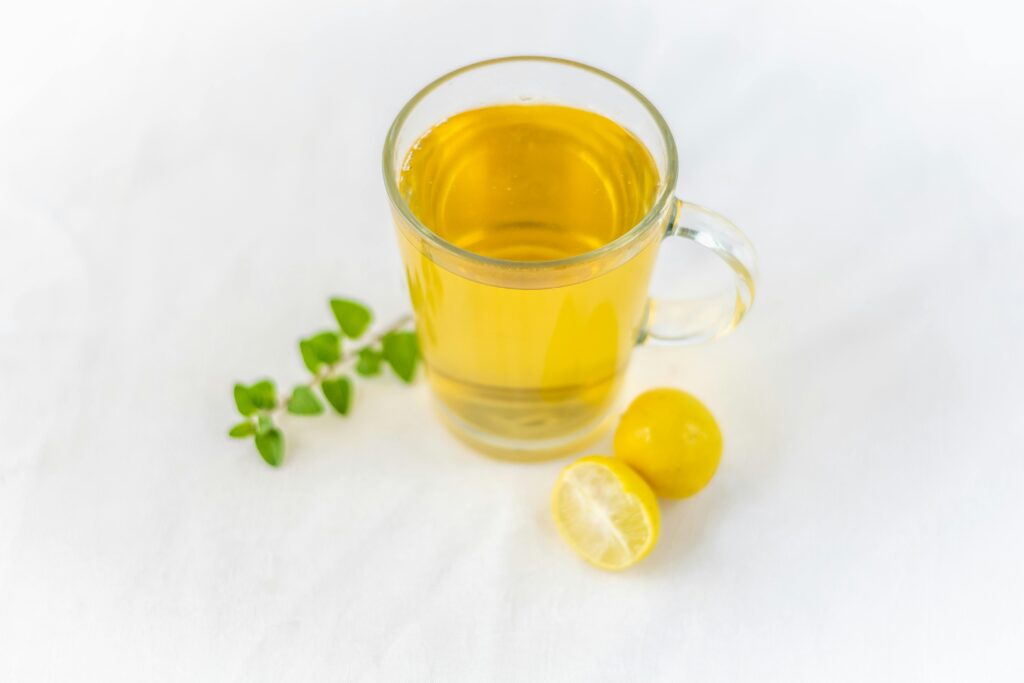Introduction
Herbal teas have been cherished for centuries, not only for their comforting flavors but also for their health-promoting properties. But how do herbal teas work in the body? Modern research reveals that these infusions are more than just soothing beverages — they contain bioactive compounds that influence digestion, stress response, inflammation, sleep, and overall wellness. In this article, we’ll break down the science behind herbal teas and explore exactly how they interact with your body’s systems.
1. What Happens When You Drink Herbal Tea?
When you sip a cup of herbal tea, the hot water extracts phytonutrients, antioxidants, essential oils, and polyphenols from the plant material. Once consumed, these compounds enter your digestive system, where they are absorbed into the bloodstream and transported to different organs.
✅ Key processes:
- Absorption: Active compounds like flavonoids, terpenes, and alkaloids enter the bloodstream.
- Metabolism: The liver breaks down these compounds, enhancing or modulating their effects.
- Distribution: Nutrients and bioactives travel to tissues, where they provide targeted benefits.
2. Antioxidants: The Defense System
One of the main reasons herbal teas support health is their antioxidant activity. Compounds such as polyphenols and flavonoids help neutralize free radicals, which are unstable molecules that cause oxidative stress and cellular damage.
Studies show antioxidants from teas can:
- Protect against chronic inflammation
- Support heart health
- Reduce risk of neurodegenerative conditions
For example, rooibos tea contains aspalathin, a rare antioxidant that may help regulate blood sugar and protect cardiovascular health.

3. Herbal Teas and Digestion
Many herbal teas directly affect the gastrointestinal system.
- Peppermint tea: Contains menthol, which relaxes smooth muscles in the digestive tract, relieving bloating and cramps.
- Ginger tea: Stimulates saliva and bile production, helping digestion and easing nausea.
- Chamomile tea: Has mild anti-inflammatory effects, soothing the stomach lining.
That’s why herbal teas are often recommended for post-meal comfort or digestive discomfort.
(Source: Medical News Today on peppermint tea benefits)
4. Stress, Anxiety, and Sleep Support
Another way herbal teas work in the body is through their impact on the nervous system. Certain compounds interact with brain receptors, helping regulate mood and relaxation.
- Chamomile tea: Contains apigenin, which binds to GABA receptors in the brain, promoting calmness.
- Valerian root tea: Enhances GABA levels, supporting sleep.
- Lemon balm tea: Linked to reduced anxiety and improved focus.
These effects are why bedtime teas are so popular for people seeking natural sleep support.

5. Immune System Boost
Some herbal teas contain compounds that support immune function.
- Echinacea tea: Stimulates white blood cell activity, helping the body fight infections.
- Elderberry tea: Rich in anthocyanins, which may reduce the duration of colds.
- Turmeric tea: Contains curcumin, a potent anti-inflammatory and immune-modulating compound.
Regular consumption of these teas can serve as a gentle immune defense.
6. Detoxification and Liver Health
The liver plays a vital role in detoxifying the body, and certain herbal teas may support its function.
- Dandelion root tea: Acts as a mild diuretic and supports liver detoxification enzymes.
- Milk thistle tea: Contains silymarin, a compound studied for its liver-protective properties.
- Green tea (technically not herbal but often included): Enhances phase II liver detox pathways.

7. The Role of Essential Oils
Many herbal teas contain volatile essential oils that provide both aroma and therapeutic effects. For example:
- Peppermint oil in peppermint tea can open airways and ease digestion.
- Cinnamon oil has antimicrobial and blood sugar-regulating effects.
- Lavender oil in lavender tea calms the nervous system and supports relaxation.
These essential oils not only provide fragrance but also deliver measurable physiological benefits.
8. Individual Responses and Bioavailability
Not everyone experiences the same effects from herbal teas because:
- Genetics affect how compounds are metabolized.
- Gut microbiota can enhance or reduce absorption.
- Lifestyle and diet influence overall effectiveness.
This means results may vary, but consistent consumption often brings noticeable benefits over time.
Related External Resources
If you want to dive deeper into the science of herbal teas, here are some recommended sources:
- 12 Science-Backed Benefits of Peppermint Tea and Extracts
- A Narrative Review on the Mechanistic Actions and Potential Health Benefits of Peppermint and Spearmint Teas
FAQ — The Science of Herbal Teas
1. How do herbal teas work in the body?
They release bioactive compounds like polyphenols, flavonoids, and essential oils, which are absorbed, metabolized, and distributed to organs where they exert health benefits.
2. Are herbal teas scientifically proven to help?
Yes, many studies confirm benefits such as digestive relief, reduced stress, better sleep, and antioxidant protection.
3. Can herbal teas replace medication?
No. While they provide natural support, herbal teas should not be seen as substitutes for prescribed treatments. Always consult a healthcare professional.
4. Do all herbal teas have the same effects?
No. Each herb contains unique compounds that target specific systems (e.g., chamomile for relaxation, peppermint for digestion).
5. Are there side effects of herbal teas?
Some teas may cause interactions with medications or allergies. For example, licorice tea may raise blood pressure. Moderation and medical advice are recommended.
Disclaimer
This content is for informational and educational purposes only. It is not intended as medical advice, diagnosis, or treatment. Always consult with a healthcare professional before adding new herbal remedies to your routine, especially if you are pregnant, nursing, or taking medication.

